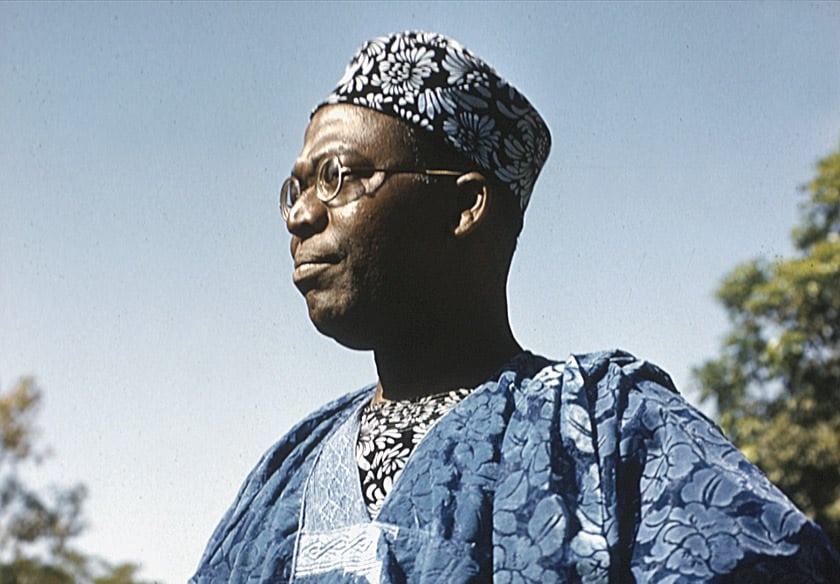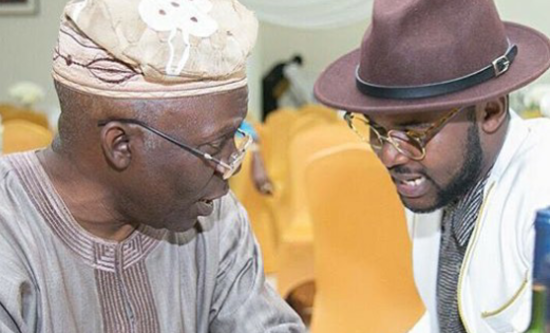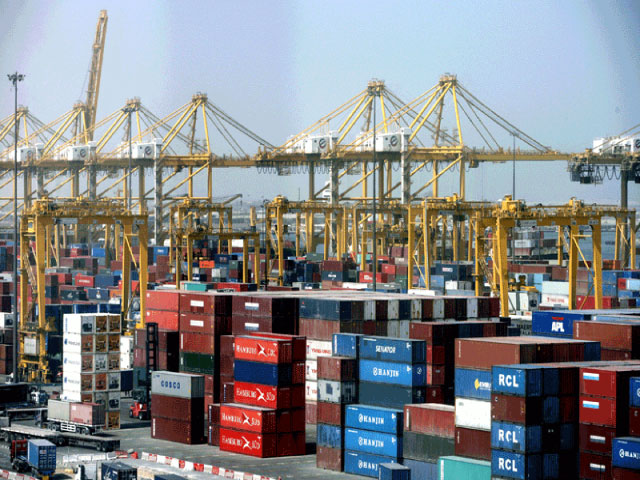BY FOLU OLAMITI
Saturday, May 9, 1987. The day broke, like any other day on. There was no premonition of anything earth-shaking. No foreboding. All seemed at peace. As editor of Sunday Tribune, I had kept vigil, the previous night, in the office putting finishing touches to a bumper package for that week’s edition. In the wee hours, nature came calling and I went home to catch some sleep. Just for a few hours.
At about 10am, I remember vividly now, I sauntered out of bed and started preparing for work. I had to get to the office before noon. Normal routine. Still, there was no fearful apprehension. However, I got curious about the cloudy weather as I peeped out of the window. Yet, I muttered involuntarily: “What a cool day.” Unknown to me, the ‘cool weather’ was an ominous sign of an impending tragedy; one that would reverberate throughout the length and breadth of our great nation; Nigeria. It was the day, Pa Obafemi Jeremiah Awolowo, went the way of all flesh. Erin wo. The mighty iroko fell that day.
I got to the office, excited about the bumper edition we wanted to bombard our loyal readers with. With a deep sense of satisfaction, I leafed through the first edition of the paper that would be circulated in the northern and eastern parts of the country. At 2pm, I summoned my crew, made up of crack reporters, writers and erudite scholars, for our usual review of the first edition. The essence of that was to see what to add or subtract for the second edition usually circulate in the south-west and mid-western states.
Among my team members were: Ayo Akinyemi, my assistant eEditor; Yinka Adelani, Gboyega Oguntuwase, Lanre Ogundipe and Kanmi Adegbite. We also had three erudite scholars on part time, including Segun Olatunji, Wale Adebanwi and Adeolu Akande. We bonded strongly and were so committed to the job that Nigeria Audit Bureau of Circulation adjudged our paper, Sunday Tribune, as the second best-selling newspaper after Daily Times. This was in the glorious days of Daily Times. This rating was a tonic for us to work harder. After review of the first edition, we celebrated that we had done a good job.
Advertisement
The major reason for our celebration was that our big boss, Felix Adenaike, a.k.a General Officer Commanding (GOC), who would have made a last vetting of the package, was in far away Argentina, attending that year’s edition of the annual International Press Institute (IPI) conference with his bosom friend, the late Peter Ajayi.
Please, permit me to digress a little. A week before, I had travelled to Warri, in present day Delta state, as head of the Tribune’s team covering the coronation of Ogiame Atuwatse II as the 19th Olu of Warri. Papa Obafemi Awolowo and his jewel, Mama Hannah, were at the occasion. Papa sighted me first, and he asked one of his security men to bring me to where he was. Papa was a stickler for detailed and accurate reportage of events, especially the one he attended. A quintessential journalist that he was, he gave me some useful tips on what he had observed before and during the event. His intervention indeed enriched the reportage in the Sunday Tribune the next day.
In any case, such briefing from Papa Awo wasn’t new to me. I had discovered the treasure trove of news in him when I was assigned to cover his activities, especially his electioneering campaigns in 1979 and 1983 respectively. That was when I cultivated the habit of staying close to Papa’s seat at events for his usual on the spur-of-the-moment ‘briefing’.
Advertisement
But the Awo I saw at the coronation of Ogiame Atuwatse II was a shadow of the Papa that we had all grown to know at Tribune. Papa was not his usual ebullient self on that day. He looked frail and tired his eyes were heavy, and had bags. He dozed off and on. Given how Papa Awo had flogged his body during those years that he traversed the nooks and crannies of this country campaigning, canvassing votes, struggling to bring better life to the people(his major pre-occupation since 1952), it wasn’t totally surprising to find the 78-year-old weak and frail. In fact, you wouldn’t blame him for taking a nap to refresh his aging body. That day, Papa Awo managed to give me a total of 12 minutes briefing.
The occasion itself didn’t last more than two and half hours. At a stage, Papa looked at his watch and told Mama: “We can make it to Ikenne today.” Mama nodded in affirmation. Photographers captured that moment and it became so symbolic and very conspicuous on newspapers’ front pages after Papa’s exit. The picture of him looking at his watch in Warri became a perfect depiction of a premonition that his time was up on Mother Earth.
The weather in Warri that day suddenly became inclement, and the heavens began to pour. It rained cats and dogs. Still, Papa and Mama left. Mama would later tell me in an interview that Papa slept all through to Ikenne.
Back to the D-Day, Saturday, May 9, 1987. After our editorial meeting, it became imperative for us to upgrade the package to accommodate breaking news. We began the process in earnest, aiming to close the pages to enable us get some rest or revel at some rendezvous. Unknown to us, the biggest story in Nigeria and the rest of the world had broken silently at Ikenne, that morning. Till date, I still marvel at how the family managed to keep some of us, editors, in the dark. The news had filtered to some editors in Lagos. Meanwhile, I had dismissed my editorial team little after 9 pm after watching NTA’s network news and no breaking news had surfaced. Indeed, I had gone to my office to pack my things ready to go home since no breaking news came after the news. I had no choice but to swing into action with my production crew.
Advertisement
While I was packing my bags, Banji Kuroloja, my colleague and elder brother who was the editor of Nigerian Tribune walked in. At first I did not look up. When I eventually did, I saw a man with red eyes, apparently deep in mourning. I thought maybe he had lost one of his relations. We hailed from the same town, Idanre, in Ondo State. So, I asked in our dialect: “Are you OK?” He crashed into my visitor’s chair and held his head as he intoned: “Papa Awo is gone”. “Gone where?” I asked. He looked up, and burst into tears and said: “Papa Awo is dead!” “Is that a joke?” I asked again. “Nooo…!” he fired back with his voice quivering: “Go outside and see the ambulance that took the body of Papa to the University of Ibadan Pathology Department for embalmment.”
At that point, my heart popped and I went blank for about five minutes. Kuroloja then asked me to order our machinists to stop work. We looked at each other, holding my hands at the back of my head, and both of us broke down. We wept like babies. Papa, to both of us, meant a lot in different ways. Apart from my closeness to Papa as his unofficial reporter, Kuroloja briefly worked with Papa as his private secretary. Papa was humane, loving and deeply interested in our private affairs, especially our families. Very few employers have that virtue.
Like I said, at this stage, all my editorial crew had gone home. In our moment of grief, we forgot that we were duty bound to publish the obituary of the founder of Tribune titles, and a political colossus of our time. We swung into action but I must confess, we missed the expert contribution of our editor-in-chief, Felix Adenaike. Had he been home, he would have heard the news ahead of us. Kuroloja and I decided to print our masthead in black, and covered the whole of the front page with Papa’s picture, with a banner headline: AWO IS DEAD.
Hard as we tried, we did poorly that Sunday compared with other newspapers in Lagos, whose editors had earlier got wind of Awo’s death. We, senior editors, quickly rallied round, wipe our tears momentarily to enable us come out with a special edition that afternoon. We served our readers what Papa told Mama to do at his transition. Mama had told us that Papa did not want people to mourn him but be happy anytime he passed. So, in that Sunday edition, we came out with Papa in white Agbada, and with broad smiles waving, we cast the headline: “DON’T MOURN ME- Awo”.
Advertisement
That set the tone for all activities that culminated in his internment on June 6 1987. The activities were laced with superlative carnivals, the kinds never seen before in Nigeria, and which I think richly qualified to be listed in the Guinness Book of World Records.
In life and in death, Papa Awo was great.
Advertisement
Folu Olamiti, a media consultant, wrote from Abuja.
Advertisement
Add a comment






